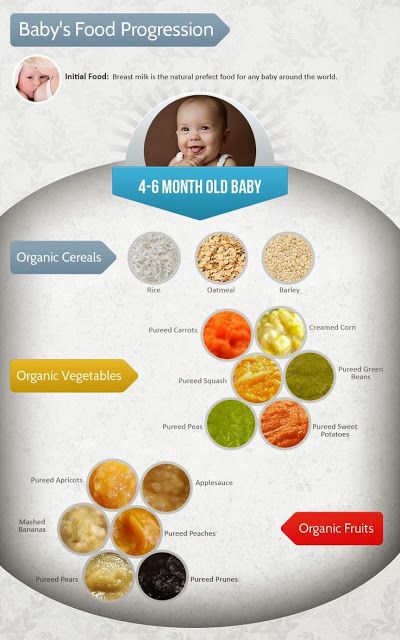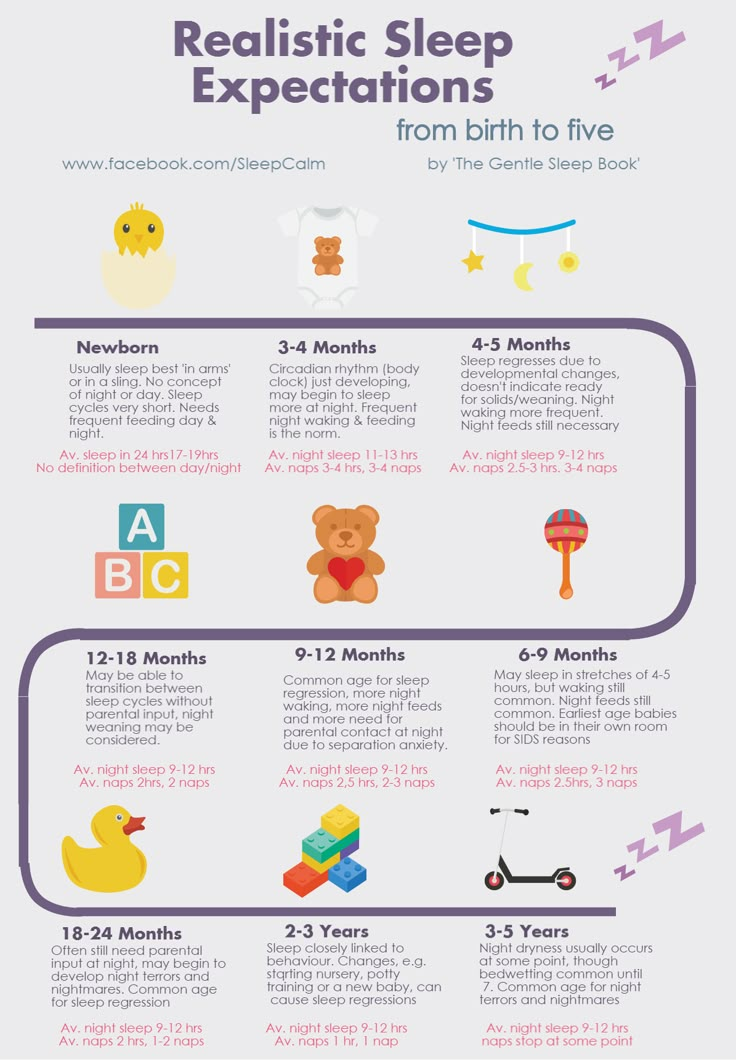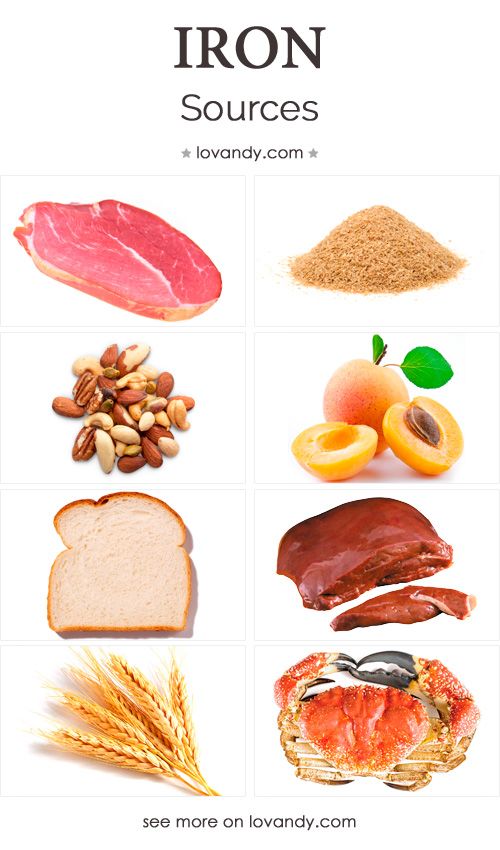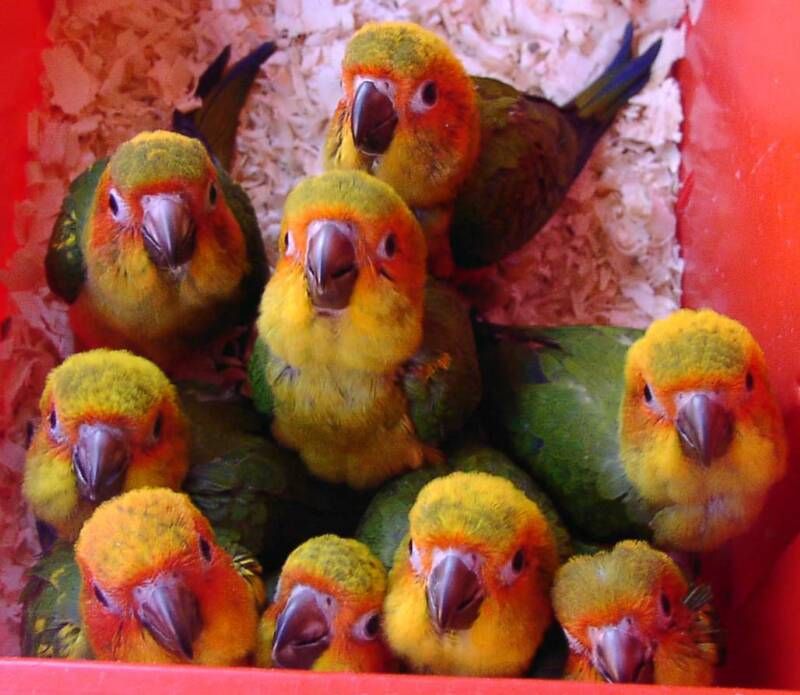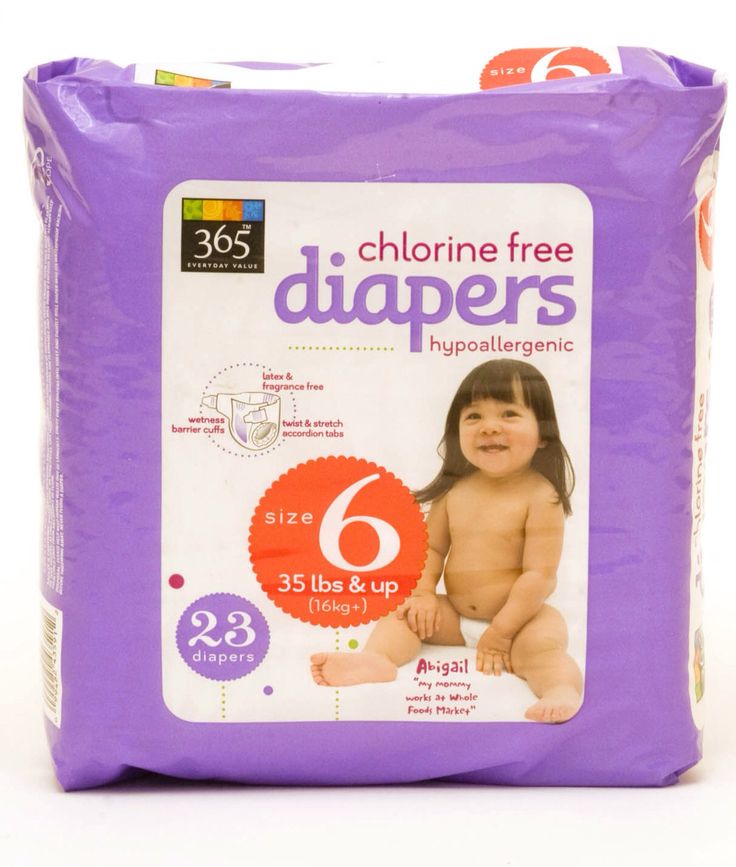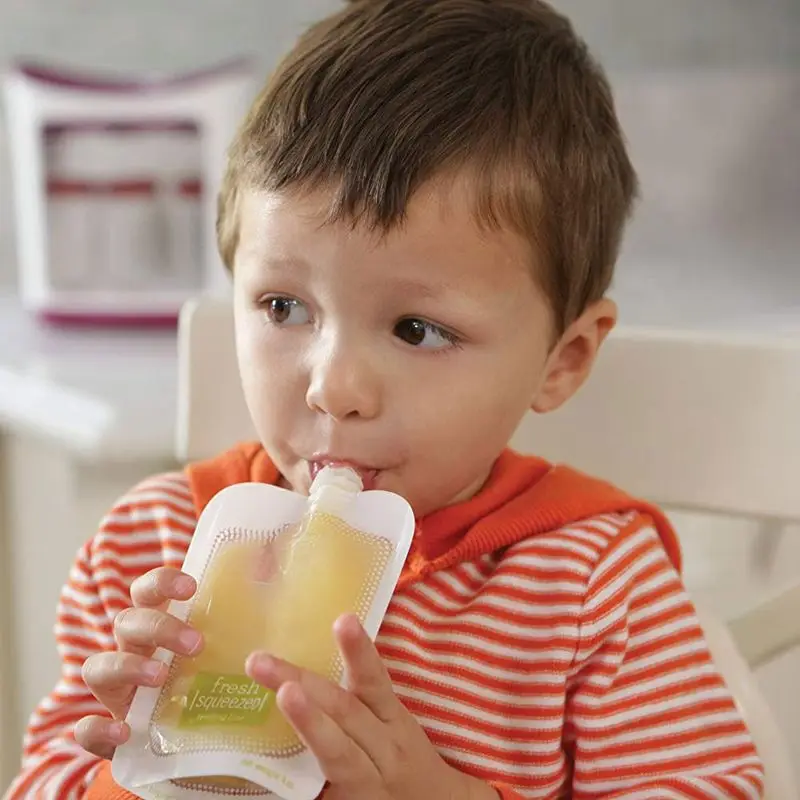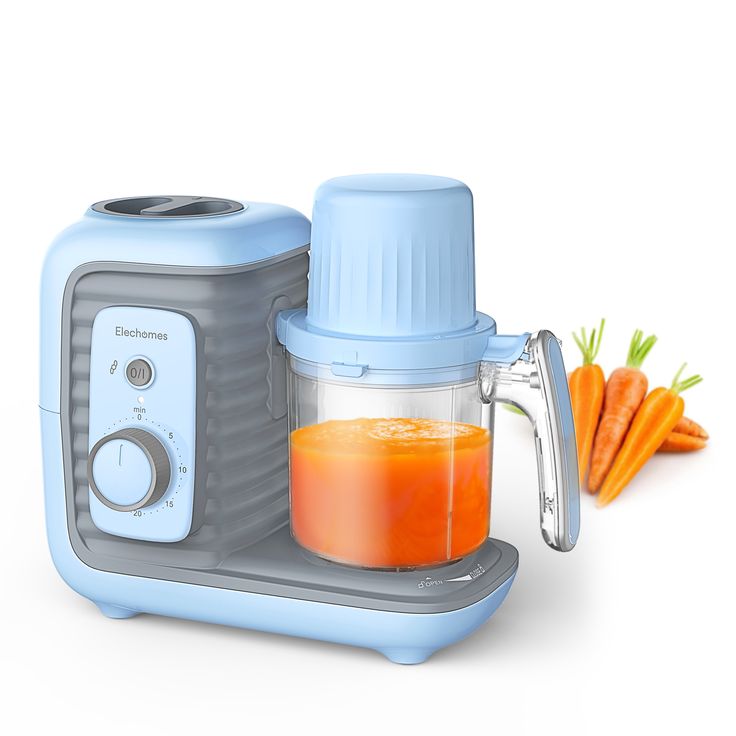Baby sick breast feeding
Breastfeeding while mum or baby are sick
If you or your baby are unwell, you may wonder whether it’s safe to breastfeed. The good news is breastfeeding while sick can have many benefits for both of you – read on to find out more
Share this content
Did you know that if you breastfeed, your baby is less likely to get ill in the first place? While it won’t completely stop her becoming sick, breast milk’s protective properties mean breastfed babies tend to be unwell less often,1 and recover faster, than formula-fed babies.
Breast milk has antibacterial and antiviral elements.2 Depending on how long you breastfeed for, you’ll be lowering your baby’s risk of contracting colds and flu, ear and respiratory tract infections, sickness and diarrhoea.1 Scientists are even investigating breast milk’s potential for treating conditions ranging from conjunctivitis to cancer. 3,4
Should I breastfeed my sick infant?
Yes. Breastfeeding a sick baby gives her a great chance of a speedy recovery, as well as helping to comfort her. Your breast milk contains antibodies, white blood cells, stem cells and protective enzymes that fight infections and may help with healing.1,5,6 It also has a constantly adjusting balance of vitamins and nutrients, supporting her to get better as quickly as possible. And that means fewer sick days and visits to the doctor for both of you.7
“Breastfeeding provides everything your baby needs if she’s poorly – it’s her medicine as well as her food, fluid and comfort. It’s the best thing on the planet for her,” says Sarah Beeson, a UK-based health visitor and nurse.
Amazingly, the composition of your breast milk changes when your baby is ill. If you’re exposed to a bacterial or viral infection, your body makes antibodies to combat it; these are then transferred to your baby through your milk.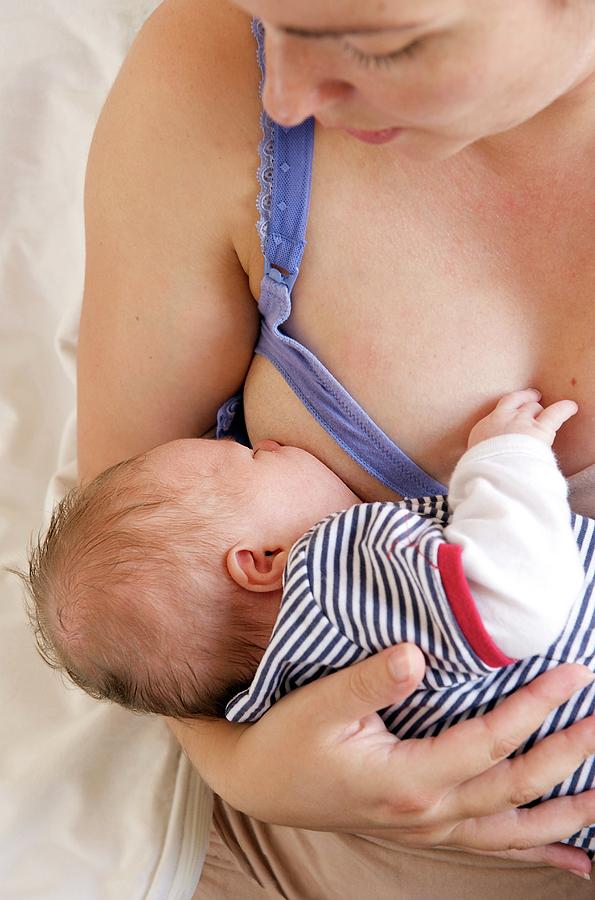 8 The levels of immunity-boosting cells, called leukocytes, in your milk also rise rapidly whenever your baby is unwell.5
8 The levels of immunity-boosting cells, called leukocytes, in your milk also rise rapidly whenever your baby is unwell.5
And because breast milk is very easy to digest, it’s also the ideal food for babies with upset tummies.
“My daughter contracted norovirus when she was 12 months old, and breast milk was the only thing she could keep down,” remembers Maya, mum of two, Spain. We had weaned naturally to one breastfeed a day at bedtime, but the supply-and-demand effect of breastfeeding her more often again was quite astonishing. Within 48 hours, I was at dairy levels of production! It saved my baby girl being put on a drip.”
Bear in mind that you may have to alter the way you breastfeed your baby while she is sick. For example, a baby with a cold may want to feed more often, but for shorter periods, both for comfort and because a blocked nose may make it harder to stay at the breast for long. If your baby has a stuffy nose she might also prefer to feed upright, so you could experiment with different breastfeeding positions.
What if my baby seems too unwell to breastfeed?
Sometimes when a baby is feeling really ill she may not have the appetite or energy to breastfeed. If you’re struggling to get her to feed, contact a healthcare professional, lactation consultant or breastfeeding specialist for advice to prevent her becoming dehydrated.
They may advise you to express some milk to feed to your baby from a syringe, cup, or other method that you’ve found requires the least effort from her to drink from. Expressing when you would normally breastfeed will also keep your milk supply steady.
If you have any concerns about your baby’s health or milk intake, always seek medical advice quickly.
Can I still breastfeed when sick?
It may be the last thing you feel like doing, but it’s best to keep breastfeeding through almost any common illness. If you have a cold or flu, fever, diarrhoea and vomiting, or mastitis, keep breastfeeding as normal. Your baby won’t catch the illness through your breast milk – in fact, it will contain antibodies to reduce her risk of getting the same bug.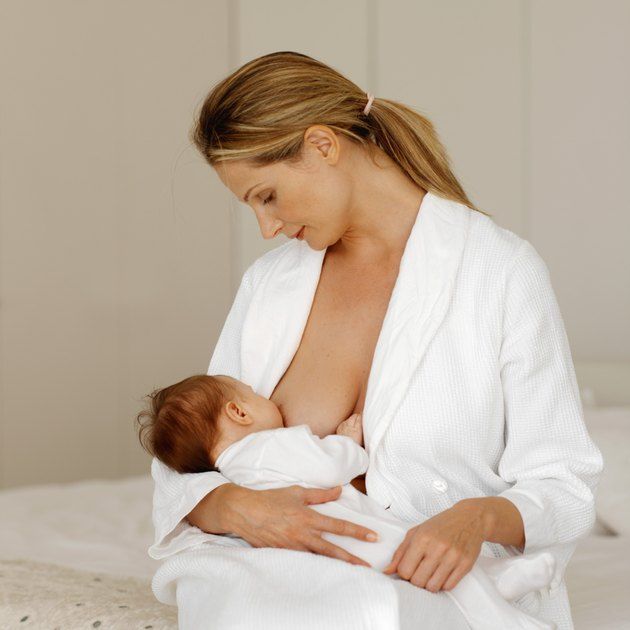
“Not only is it safe, breastfeeding while sick is a good idea. Your baby is actually the person least likely to fall ill with your tummy upset or cold, as she has already been in close contact with you and is getting a daily dose of those protective antibodies from your milk,” says Sarah Beeson.
However, being sick and continuing to breastfeed can be extremely tiring. You’ll need to look after yourself so you can look after your baby. Keep your fluid levels up, eat when you can, and remember your body needs extra rest. Book a seat on your sofa and snuggle up with your baby for a few days, and ask family or friends to help with caring for your baby when possible so you can focus on recovering.
“Don’t worry about your breast milk supply – you will keep producing it. Just don’t stop breastfeeding abruptly as you’ll run the risk of getting mastitis,” Sarah adds.
Good hygiene is important to minimise the risk of spreading the illness. Wash your hands with soap before and after feeding your baby, preparing and eating food, going to the toilet or changing nappies. Catch coughs and sneezes in a tissue, or in the crook of your elbow (not your hands) if you don’t have one with you, and always wash or sanitise your hands after coughing, sneezing or blowing your nose.
Catch coughs and sneezes in a tissue, or in the crook of your elbow (not your hands) if you don’t have one with you, and always wash or sanitise your hands after coughing, sneezing or blowing your nose.
Is it OK to take medicines while breastfeeding?
It’s fine to take paracetamol, ibuprofen and some antibiotics while breastfeeding,9,10 as long as you discuss it with a healthcare professional and follow the dosing instructions. Remember ibuprofen has contraindications for asthmatic mums.
Previously mums were advised to avoid aspirin, but a recent study indicated low doses are likely to be safe while breastfeeding.11 However, high doses have been linked to a rare but serious condition called Reye’s syndrome in infants,12 so it’s best to discuss the use of aspirin with your healthcare professional.
Stronger prescription painkillers, such as codeine and tramadol, aren’t recommended.10 Since guidelines and recommendations are continually updated, your healthcare professional or pharmacist will be able to give you more information on specific medicines if you have any concerns.
Some cold, flu and cough remedies contain decongestants or expectorants, and these could reduce your milk supply. Steer clear of those that have phenylephrine, phenylpropanolamine or guaifenesin listed in their ingredients.9 Medicines that cause drowsiness are best avoided when you’re breastfeeding too.
“Check the packaging and if you’re still uncertain, ask a healthcare professional,” Sarah advises. “And if your baby was born prematurely, at a low birth weight, or has a medical condition, you should check before taking any medications while breastfeeding – even paracetamol.
“Whenever you go to a doctor or a pharmacist, for any reason, always make it clear you’re breastfeeding and ask for the best option,” she adds.
How about long-term medication?
If you’re on long-term medication for diabetes, asthma, depression or any other chronic health condition, the benefits of breastfeeding can outweigh the risks. “Breastfeeding is often still possible with nearly all illnesses, except for a few rare conditions,” says Sarah.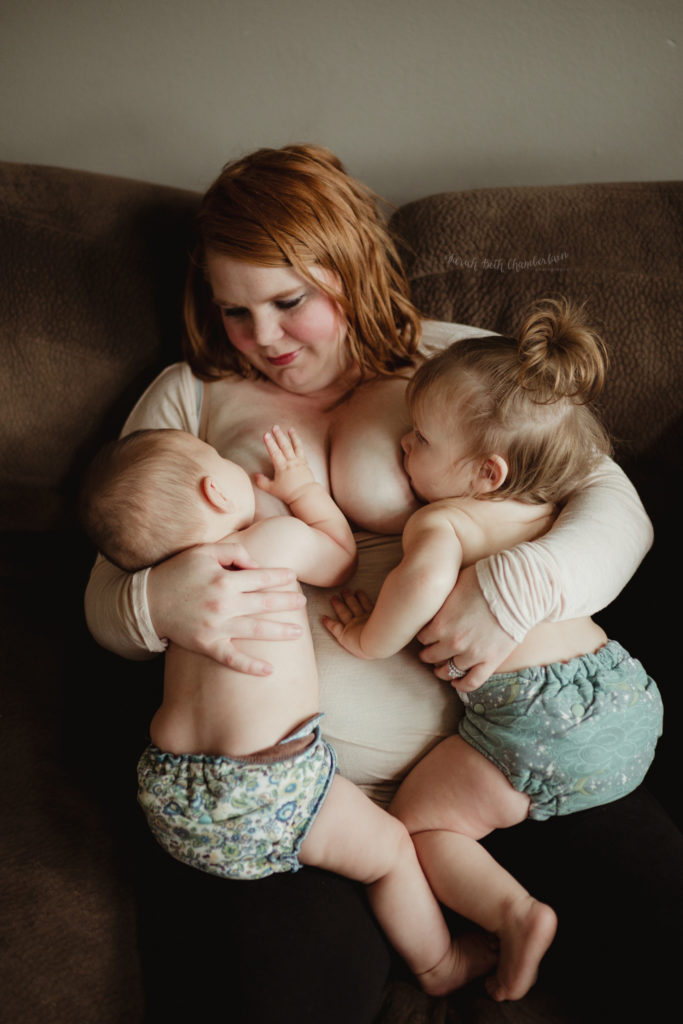 “You’ll be familiar with your regular medications and should have an opportunity to discuss them with your doctor or specialist while pregnant. There is guidance available for all healthcare professionals on the safety of different drugs.” In any event, you should discuss this issue with your doctor or healthcare professional.
“You’ll be familiar with your regular medications and should have an opportunity to discuss them with your doctor or specialist while pregnant. There is guidance available for all healthcare professionals on the safety of different drugs.” In any event, you should discuss this issue with your doctor or healthcare professional.
I was on a high dose of medication for my epilepsy but breastfeeding was still possible,” says Nicola, mum of one, UK. “I was monitored by my neurologist to get a balance between safety for my son and keeping my risk of a seizure low. Seizures can be triggered by lack of sleep and I was feeding day and night, but I took good care of myself, as did my husband. It’s been a positive experience.”
What if I have to go into hospital?
Whether you need planned or emergency treatment, there are ways to ensure your baby continues to receive the benefits of breast milk, and that you can continue breastfeeding once discharged.
“Express and freeze your breast milk so a caregiver can feed it to your baby.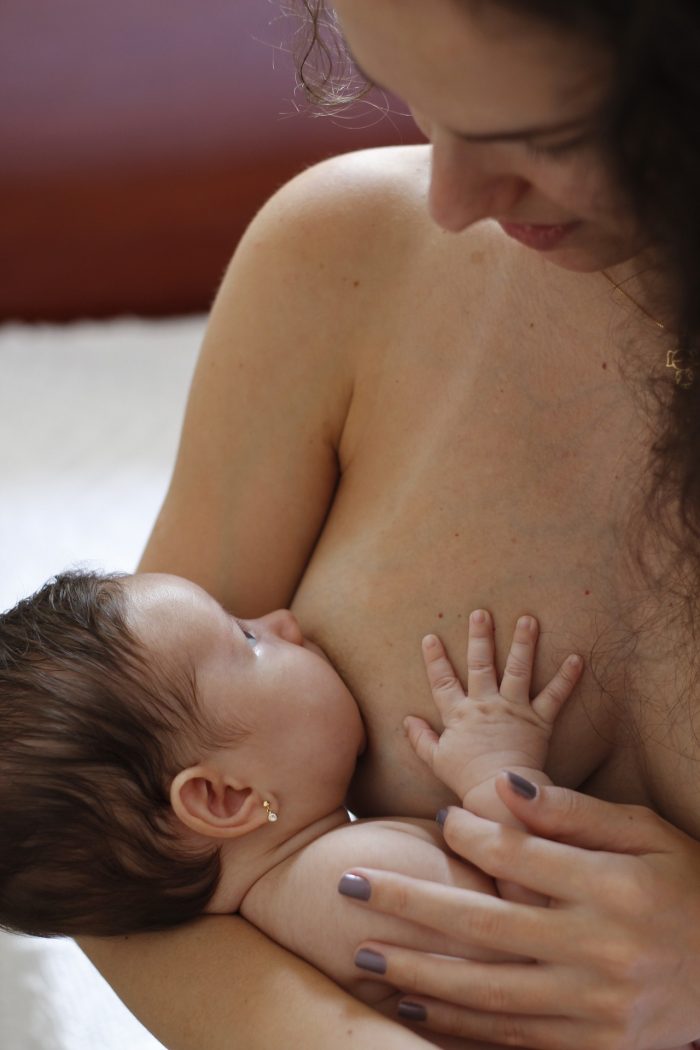 Have a practice ahead of time, and make sure you tell healthcare professionals you are a breastfeeding mum when you’re booked in, and again when you’re admitted,” suggests Sarah.
Have a practice ahead of time, and make sure you tell healthcare professionals you are a breastfeeding mum when you’re booked in, and again when you’re admitted,” suggests Sarah.
“If your baby is small, they may let you have her with you. Ask whether there’s a hospital lactation consultant or breastfeeding specialist you can see too – they’ll be a great advocate for you, especially if you’re on a general ward. If it’s an emergency, make sure the healthcare professionals know you have a baby – it’s not something they might think about otherwise.”
Having surgery under local or general anaesthetic doesn’t mean you need to stop breastfeeding, or to ‘pump and dump’ your breast milk. By the time you feel well enough to hold your baby after an operation, the amount of anaesthetic in your breast milk will be minimal and it should nearly always be safe to breastfeed.10 However, you should seek the advice of a healthcare professional, lactation consultant or breastfeeding specialist in any of these circumstances.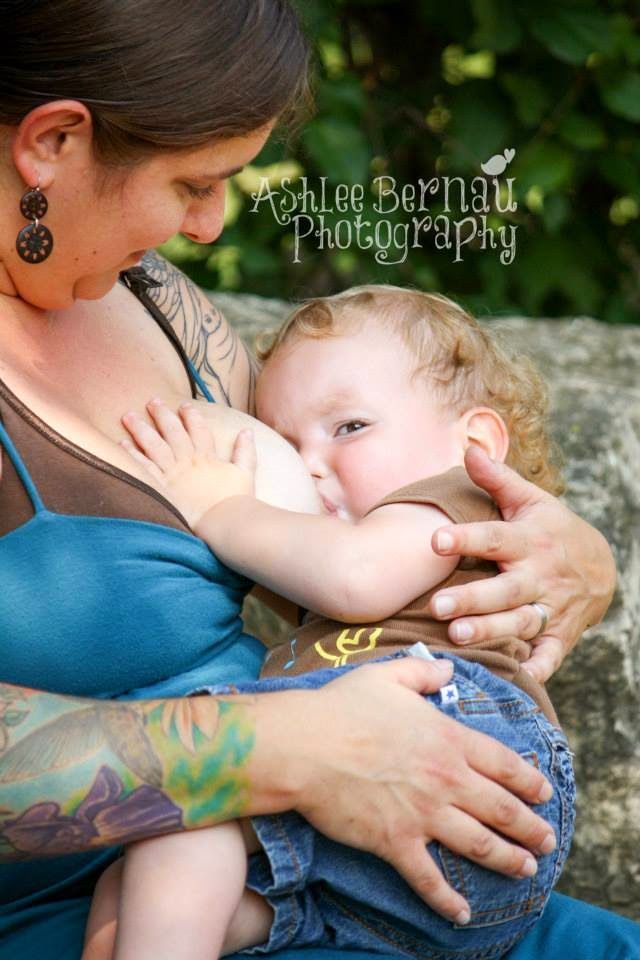
Should I ever not breastfeed?
There are a few situations in which it’s safest to stop breastfeeding temporarily and pump and discard your milk to keep up your supply until treatment is complete. These include if you have radiotherapy or chemotherapy for cancer, herpes lesions on your breast, or infections such as tuberculosis, measles or septicaemia, that could be transmitted through your milk.13,14 Seek expert medical advice about your condition and whether it’s best to continue or interrupt breastfeeding.
References
1 Victora CG et al. Breastfeeding in the 21st century: epidemiology, mechanisms, and lifelong effect. Lancet. 2016;387(10017):475-490.
2 Lönnerdal B. Bioactive proteins in breast milk. J Paediatr Child Health. 2013;49 Suppl 1:1-7.
3 Australian Breastfeeding Association [Internet]. Topical treatment with breastmilk: randomised trials. [cited 2018 Apr 4]. Available from https://www.breastfeeding.asn.au/tropical-treatment-with-breastmilk-randomised-trials
4 Ho JCS et al. HAMLET–A protein-lipid complex with broad tumoricidal activity. Biochem Biophys Res Commun. 2017;482(3):454-458.
HAMLET–A protein-lipid complex with broad tumoricidal activity. Biochem Biophys Res Commun. 2017;482(3):454-458.
5 Hassiotou F et al. Maternal and infant infections stimulate a rapid leukocyte response in breastmilk. Clin Transl Immunology. 2013;2(4):e3.
6 Hassiotou F, Hartmann PE. At the dawn of a new discovery: the potential of breast milk stem cells. Adv Nutr. 2014;5(6):770-778.
7 Ladomenou F et al. Protective effect of exclusive breastfeeding against infections during infancy: a prospective study. Arch Dis Child. 2010;95(12):1004-1008.
8 Hanson LA. Breastfeeding provides passive and likely long-lasting active immunity. Ann Allergy Asthma Immunol. 1998;81(6):523-533.
9 Hale TW, Rowe HE. Medications and Mothers' Milk 2017. 17th ed. New York, USA: Springer Publishing Company; 2017. 1095 p.
10 Reece-Stremtan S et al. ABM Clinical Protocol# 15: Analgesia and anesthesia for the breastfeeding mother, Revised 2017. Breastfeed Med. 2017;12(9):500-506.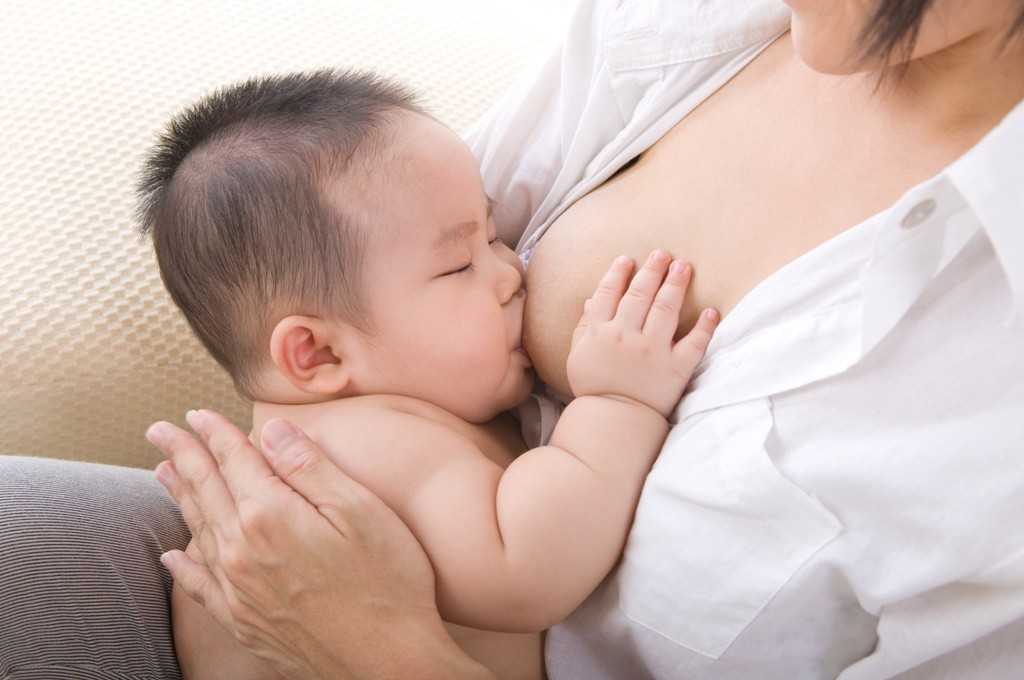
11 Datta P et al. Transfer of low dose aspirin into human milk. J Hum Lact. 2017;33(2):296-299.
12 Morello O. Safe in breastfeeding [Internet]. Italy: Orfeo Morello; 2016. Aspirin: Can I take aspirin while breastfeeding? [cited 2018 Apr 4]. Available from: https://www.safeinbreastfeeding.com/aspirin/
13 Lamounier JA et al. Recommendations for breastfeeding during maternal infections. J Pediatr (Rio J). 2004;80(5 Suppl):181-188.
14 Hema M et al., Management of newborn infant born to mother suffering from tuberculosis: Current recommendations & gaps in knowledge. Indian J Med Res. 2014;140(1):32-39.
Does Breast Milk Change When Your Baby Is Sick?
You may have heard that breastfeeding is one of the best ways to boost your baby’s immune system and prevent them from getting sick. That doesn’t mean that your baby won’t ever catch a virus. Babies tend to be little germ factories, whether they’re nursing or not.
If your nursing baby has caught a bug, you might be wondering in what way your milk will protect them. Does breast milk change in some way when your baby is sick? Should you continue nursing your little one when they’re sick? What about when you’re feeling unwell? (Hint: yes, yes, and yes!)
Does breast milk change in some way when your baby is sick? Should you continue nursing your little one when they’re sick? What about when you’re feeling unwell? (Hint: yes, yes, and yes!)
Even when your baby isn’t fighting a virus, your breast milk has a baseline of elements that help protect your baby from illnesses and infections. First, breast milk is full of antibodies. These antibodies are highest in colostrum, the milk your baby receives at birth and during the first few days afterward. The antibodies also continue to be present in your milk the WHOLE time you’re nursing your baby, even if you nurse well into toddlerhood or beyond.
Your milk also contains a blend of proteins, fats, sugars, and white blood cells that work to fight infections. Other immune-boosting elements include lactoferrin, lactadherin, antiproteases, and osteopontin — antivirals and anti-inflammatories that help keep your baby’s immune system strong.
According to the Academy of Breastfeeding Medicine (ABM), there is strong evidence, too, that breast milk changes when you’re sick. When a nursing parent is under the weather, antibodies against that infection begin to be produced immediately and are found in breast milk.
When a nursing parent is under the weather, antibodies against that infection begin to be produced immediately and are found in breast milk.
What about when it’s your baby who catches the bug first? ABM notes that disease-fighting elements start to increase in breast milk in this case as well. So the answer to “Does your breast milk change when your baby is sick” is, “Yes!”
Tips for nursing a sick baby
Nursing can be more challenging when your baby is sick. Your baby may be fussier than usual. They may want to nurse more or less frequently. They may also be too congested to nurse. Here are some tips for getting through this tough time.
- If your baby is too stuffed up to nurse, consider saline spray or using a bulb syringe to clear the mucus before nursing.
- Keep the humidifier running to loosen mucus; you can also nurse your baby in a steamy bathroom.
- Nursing in a more upright position can also help with a congested baby.
- Often, sick babies will want to nurse more frequently; try to go with the flow, knowing that you can get back into a routine once your baby is better.

- If your baby is sleeping more than usual and nursing less, offer the breast right when they wake up, or even in the middle of a nap.
- If your baby seems too lethargic to nurse, you should call their pediatrician: it’s very important that your baby stays hydrated while sick.
More research needs to be done to get a fuller picture, but there is evidence that breast milk changes in response to a baby’s illness.
First, a study from 2012 found that when a baby has an active infection, the white blood cell content (macrophages) of their parent’s breast milk increases, as do other protective factors. This supports the idea that the immune defense provided by your nursing sick infants is active and responsive.
Next, a study in 2013 looked at what happened to the baseline amounts of leukocytes (a type of white blood cells) in breast milk during times of illness for the nursing parent or their nursed baby. The researchers found that leukocytes increased “significantly” when either the nursing parent or their baby was ill.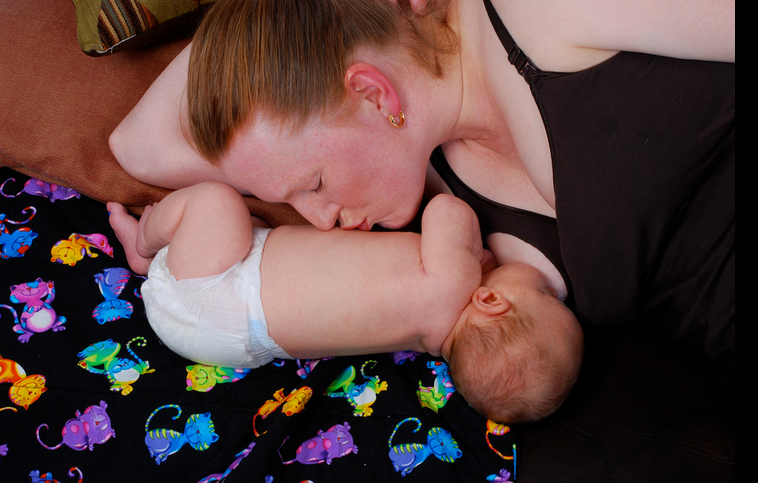
Once the illness passed, the level of leukocytes returned to normal baseline levels, suggesting a relationship between illness and leukocyte levels in breast milk. The study researchers concluded that there’s likely a strong association between the health of the nursing parent and infant and leukocyte levels of their breast milk.
Questions for your doctor or healthcare professional
It’s understandable that you might have concerns about nursing while your baby is sick. Here are some questions you might want to ask a healthcare professional to put your mind at ease:
- Do I need to change the frequency of nursing while my baby is sick?
- What should I do if my baby is too tired or congested to nurse?
- What are some signs that I should be taking my baby to the pediatrician?
- Is it OK if my baby seems to want to nurse “all the time” while they are sick?
You may have seen some viral social media posts depicting color changes in breast milk during times of illness. While these are certainly fascinating, there is no published evidence as of yet showing that these color changes are a direct result of breast milk changing in reaction to an infection from a nursed baby or nursing parent.
While these are certainly fascinating, there is no published evidence as of yet showing that these color changes are a direct result of breast milk changing in reaction to an infection from a nursed baby or nursing parent.
That doesn’t mean this isn’t possible — just that there’s no research to support it as of now. However, there is evidence that breast milk changes color for other reasons, including in reaction to something a nursing parent ate, a vitamin they took, or other external changes that may affect their milk’s color.
One example is this case report from 2012 of a nursing mother whose breast milk turned green as a result of a multivitamin she was taking. Breast milk is known to turn a rusty brown at times as a result of something called “rusty pipe” syndrome, which is where a little blood is found in milk during early breastfeeding, but soon resolves.
Other known causes of breast milk color changes include the fact that milk changes from the yellowish/gold color of colostrum when your baby is first born to the whitish color of mature milk. Even mature milk changes color throughout the day and from feed to feed. The more watery “foremilk” that comes at the beginning of a feed or when your breasts are very full has a more bluish hue. The fattier “hindmilk” that comes as your breasts empty usually appears more creamy and yellowish.
Even mature milk changes color throughout the day and from feed to feed. The more watery “foremilk” that comes at the beginning of a feed or when your breasts are very full has a more bluish hue. The fattier “hindmilk” that comes as your breasts empty usually appears more creamy and yellowish.
If you notice any changes in your milk that can’t easily be explained, you should reach out to a healthcare professional or lactation consultant for clarification.
These days, the illness parents of little ones are probably worried about most is COVID-19. Thankfully, there is research suggesting that it’s safe to breastfeed if you have COVID-19, and the World Health Organization (WHO) recommends that lactating parents with COVID-19 continue to nurse their infants.
There is even some research to suggest that nursing may protect babies against serious SARS-CoV-2 (the infection that causes COVID-19). An observational study found that babies who were nursed were less likely to test positive for COVID-19 than babies who didn’t receive any breast milk.
Additionally, antibodies for COVID-19 have been found in the breast milk of parents who have COVID-19 and parents who have been vaccinated against COVID-19. This means that a breastfed baby can likely have some immunity against COVID-19 even without getting sick or being vaccinated themselves.
Moreover, there’s no evidence that the SARS-CoV-2 virus itself can be passed to a baby via breast milk. In other words, if you have COVID-19, you can’t give it to your baby through your milk. All of these reasons are why experts urge parents to continue breastfeeding when either they or their babies are ill with COVID-19.
Breastfeeding has been found to prevent babies from getting sick in the first place, and protects against common childhood ailments such as ear infections, diarrhea and vomiting, pneumonia, and urinary tract infections. Even when your baby does get sick, breastfeeding has many benefits for your baby:
- Breastfeeding has been found to lower the illness course and severity
- Breastfeeding keeps your baby hydrated, and it’s often the one thing that babies can keep down when they’re vomiting or ill
- Breastfeeding comforts babies, and keeps them close and bonded with their parents
- Breastfeeding is good for parents too: it offers you a chance to sit and rest with your baby, and fills you with “feel good” hormones like prolactin and oxytocin that keep you emotionally balanced during stressful times, such as when your baby is sick
Researchers have just begun to scratch the surface of the ways that breast milk changes when your baby is sick. There is emerging evidence that breast milk increases its protections and immune-boosting properties when your baby is sick. What’s more, there is evidence that breast milk changes when a breastfeeding parent is sick.
There is emerging evidence that breast milk increases its protections and immune-boosting properties when your baby is sick. What’s more, there is evidence that breast milk changes when a breastfeeding parent is sick.
Let’s not forget all the data out there showing the many protective elements found in breast milk, whether your baby is currently sick or not. The bottom line is that if your baby is sick, breast milk is one of the best ways to help them fight their illness.
If you have any questions about breastfeeding during times of illness, don’t hesitate to reach out to your healthcare professional.
Feeding when sick | Medela
If you or your baby are unwell, you may wonder if it is safe to breastfeed. The great news is that breastfeeding when you're sick is most often good for both of you. Read more about this in our article.
Share this information
Did you know that a breastfed baby is usually much less prone to illness? Although it is impossible to avoid them completely, the protective properties of breast milk help babies get sick less often 1 and recover faster than formula-fed babies.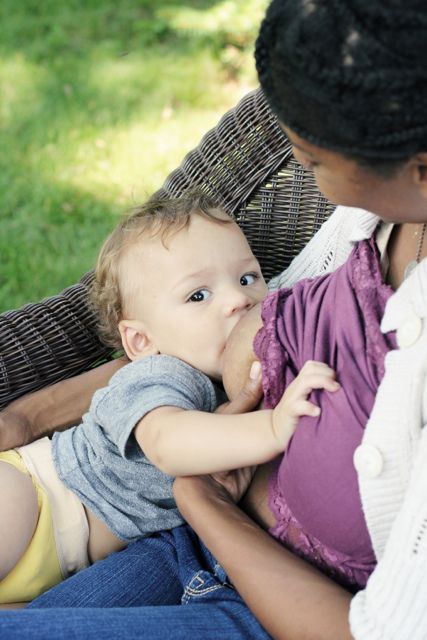
Breast milk contains antibacterial and antiviral agents. 2 The longer you breastfeed your baby, the lower the risk of colds and flu, ear and respiratory infections, nausea and diarrhea. 1 Scientists are already exploring the use of breast milk to treat everything from conjunctivitis to cancer. 3.4
Should a sick baby be breastfed?
Yes. Breastfeeding promotes recovery and also helps to calm the baby. Breast milk contains antibodies, white blood cells, stem cells, and protective enzymes that help fight infections and help your baby recover faster. 1,5,6 In addition, the composition of breast milk (the balance of vitamins and nutrients) is constantly adjusted to the baby's body to help him recover as soon as possible. Thus, you will spend less time on sick leave and visit the doctor less often. 7
“Breastfeeding gives the baby everything she needs when she is sick. This is his medicine, food, drink and comfort.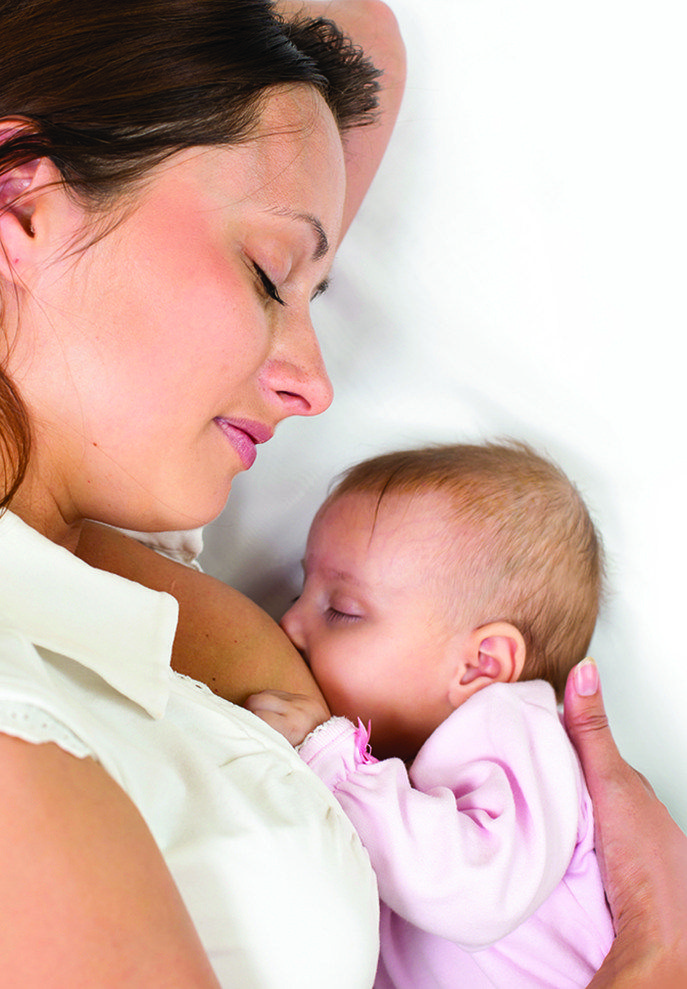 For a baby, this is the best thing in the world,” says Sarah Beeson, a health visitor from the UK.
For a baby, this is the best thing in the world,” says Sarah Beeson, a health visitor from the UK.
Surprisingly, when a child becomes ill, the composition of breast milk changes. When you come into contact with pathogens of bacterial and viral infections, your body begins to produce antibodies to fight them, which are then passed through milk to your baby. 8 When your baby is sick, your milk also spikes in immune-boosting cells (white blood cells). 5
In addition, breast milk is very easy to digest, making it ideal for babies with indigestion.
“At 12 months my daughter contracted norovirus and could only breastfeed,” recalls Maya, a mother of two in Spain. produce more milk. It was amazing. After 48 hours, I was able to meet the daily requirement for milk. It saved my baby from a drip."
It should be taken into account that sometimes during an illness it is necessary to change the habitual breastfeeding regimen. For example, with a cold, a baby may want to eat more often, but little by little, both to calm down and because of nasal congestion, which makes it difficult to apply to the chest for a long time.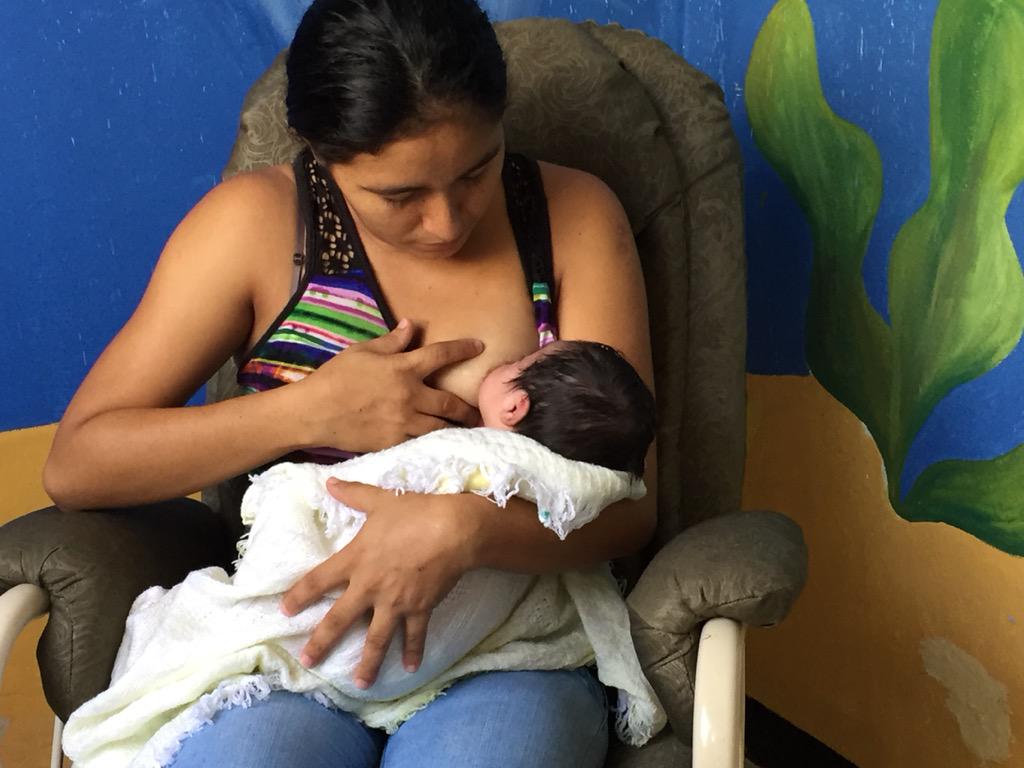 If your baby has a stuffy nose, an upright breastfeeding position may be more comfortable, so don't be afraid to try different breastfeeding positions.
If your baby has a stuffy nose, an upright breastfeeding position may be more comfortable, so don't be afraid to try different breastfeeding positions.
What should I do if my baby is seriously unwell and cannot breastfeed?
Occasionally, if a child feels unwell, they may not have an appetite or the strength to feed. If your baby is not eating well, seek advice from your healthcare provider, nurse practitioner, or lactation consultant to help prevent dehydration.
You may be asked to express milk to feed your baby with a bottle, a Soft Cup*, or other suitable method that requires minimal effort from the baby. Pumping on a regular breastfeeding schedule will also help keep your milk supply stable.
You can express milk with one of our convenient breast pumps, such as the modern electronic Swing Flex** or the Harmony** manual breast pump. Rest assured, freshly expressed breast milk is just as good as breast milk, so your baby will get all the protection and support it needs.
If you have concerns about your baby's health or how much milk they are drinking, see your doctor as soon as possible.
Can I continue to breastfeed if I become ill myself?
You may not want to do this if you feel unwell, but in most cases it is best to continue breastfeeding. If you have a cold, runny nose, diarrhoea, vomiting, or mastitis, continue breastfeeding as normal with your doctor's approval. The baby is unlikely to become infected through breast milk. What's more, the antibodies in your milk will help reduce your baby's risk of contracting the same 13 virus.
“Breastfeeding when sick is not only safe most of the time, but also beneficial. Your baby is the least at risk of catching your upset stomach or cold, as he is already in close contact with you and receives a daily dose of protective antibodies from milk, ”says Sarah Beeson.
If there is a risk of contracting a viral infection by airborne droplets, it is advisable to temporarily switch to expressing breast milk and bottle feeding.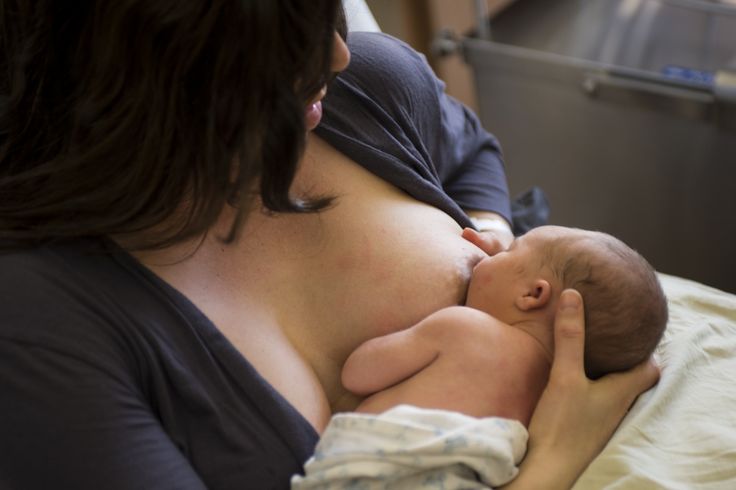
In order not to lose the amount of milk produced when the body is still weakened by the disease, it is best to use the Swing Maxi Flex ** double breast pump, which helps to stimulate lactation, increase the amount of milk (by 18% on average) and increase its fat content (+1% ) 14 .
However, breastfeeding and pumping when sick can be very tiring. You need to take care of yourself so that you can take care of the baby. Try to drink more fluids, eat when you can, and get plenty of rest. Crawl under the covers for a few days and ask family or friends to help care for your baby if possible, so you can put all your energy into recovery.
“Don't worry about your milk supply, it will last. Most importantly, do not stop breastfeeding abruptly so that mastitis does not develop, ”adds Sarah.
Proper hygiene is very important to reduce the risk of spreading the disease. Wash your hands with soap and water before and after breastfeeding and pumping, preparing and eating food, using the toilet and changing diapers. Use a tissue when coughing and sneezing, or cover your mouth with the crook of your elbow (not your palm) if you don't have a tissue handy. Be sure to wash or sanitize your hands after coughing, sneezing, and blowing your nose.
Use a tissue when coughing and sneezing, or cover your mouth with the crook of your elbow (not your palm) if you don't have a tissue handy. Be sure to wash or sanitize your hands after coughing, sneezing, and blowing your nose.
Can I take medication while breastfeeding?
In agreement with the attending physician and compliance with the dosage, certain medications are allowed. 9.10
.
“When talking to a doctor or pharmacist for any reason, always state that you are breastfeeding,” she continues.
What about long-term treatment?
If you are on long-term treatment for diabetes, asthma, depression, or other chronic conditions, the benefits of breastfeeding may outweigh the risks. “Breastfeeding is often possible for almost any disease, with the exception of some very rare conditions,” Sarah says, “you will be very familiar with the drugs you are taking, and during pregnancy you can discuss them with your doctor or other specialist.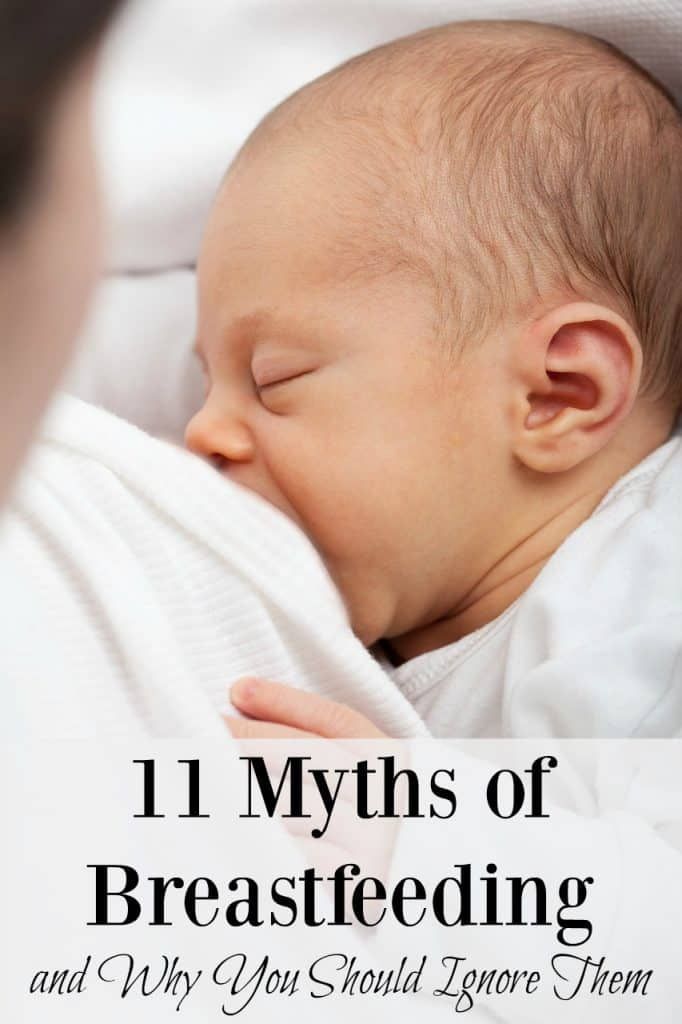 There is guidance on the safe use of various medicines that all healthcare professionals use.” In any case, you should consult with your doctor.
There is guidance on the safe use of various medicines that all healthcare professionals use.” In any case, you should consult with your doctor.
“I was on high doses of epilepsy medication, but I was still able to breastfeed,” recalls Nicola, a mother from the UK. “I saw a neurologist to ensure my son was safe and to minimize the risk of a seizure. Seizures can happen due to lack of sleep, and I fed day and night, but I took good care of myself, and my husband supported me. It was a positive experience."
What if I have to go to the hospital?
If you need to be hospitalized or urgently hospitalized, there are different ways to continue feeding your baby healthy breast milk so that you can return to normal breastfeeding after you are discharged.
“Express and freeze breast milk so that the caregiver can feed the baby. Practice at home ahead of time and be sure to let your doctors know that you are a breastfeeding mother, both before entering the hospital and while in it, ”recommends Sarah.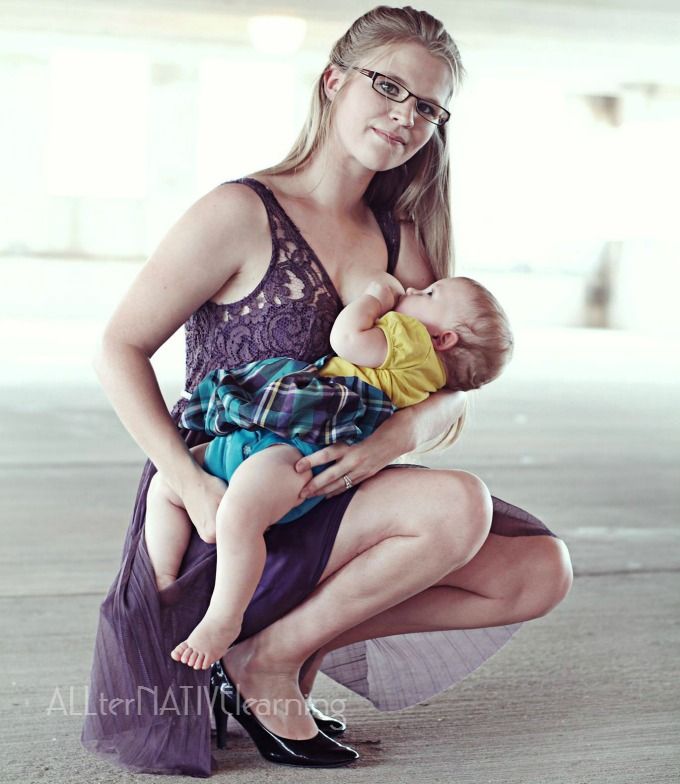
“If the baby is very small, you may be allowed to take him with you. Find out if the hospital has a supervising doctor or lactation consultant to contact. This specialist will support you, especially if you are in a general ward. If hospitalization is urgent, warn the doctors that you have a baby so that they take this into account.
Surgery under local or general anesthesia does not necessarily mean that breastfeeding will have to be stopped, or milk will need to be pumped and discarded. By the time you recover from surgery and can hold your baby, the amount of anesthetic in your breast milk will be minimal, so breastfeeding will be safe in most cases. 10 However, it is always best to consult your doctor or attending physician beforehand.
To ensure that the situation of treatment or departure does not affect the baby's diet, it is advisable to create a breast milk bank. This should be done daily by expressing one extra serving and freezing it in the handy, durable Medela Breast Milk Storage Bags.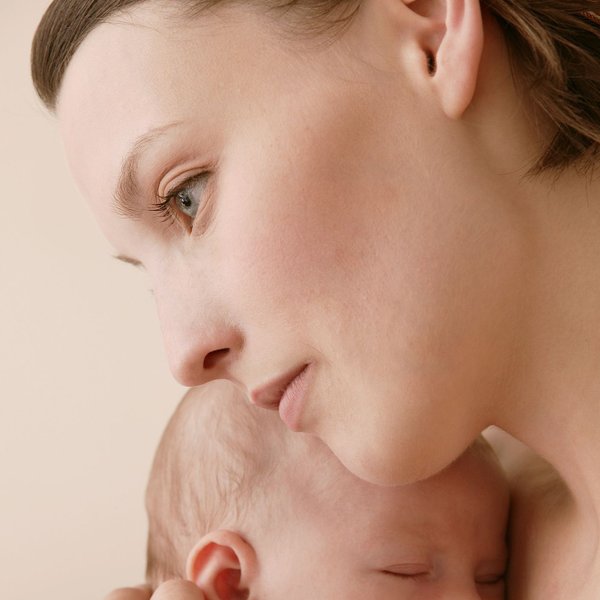 Even stored for several months and then thawed, your carefully prepared milk will still be incomparably healthier than formula.
Even stored for several months and then thawed, your carefully prepared milk will still be incomparably healthier than formula.
For hygienic and easy pumping, use a breast pump with 2-Phase Expression technology for a fast, full flow of milk. For example, the ultra-comfortable Swing Flex** breastpump that adapts to the shape of your breasts and allows you to pump milk in a comfortable position, even lying back on the pillows 15 .
Don't forget to sterilize your breast pump with the Quick Clean microwave bags. Medela milk storage bags do not need to be handled as they are aseptically packaged and ready to use immediately.
Are there times when breastfeeding is not allowed?
In some cases, for the safety of the baby, breastfeeding should be stopped for a while, and instead, milk should be expressed and discarded to maintain milk production until the end of treatment. This includes radiotherapy and chemotherapy for cancer, herpes sores on the chest, and infections such as tuberculosis, measles, or blood poisoning that can be transmitted through breast milk.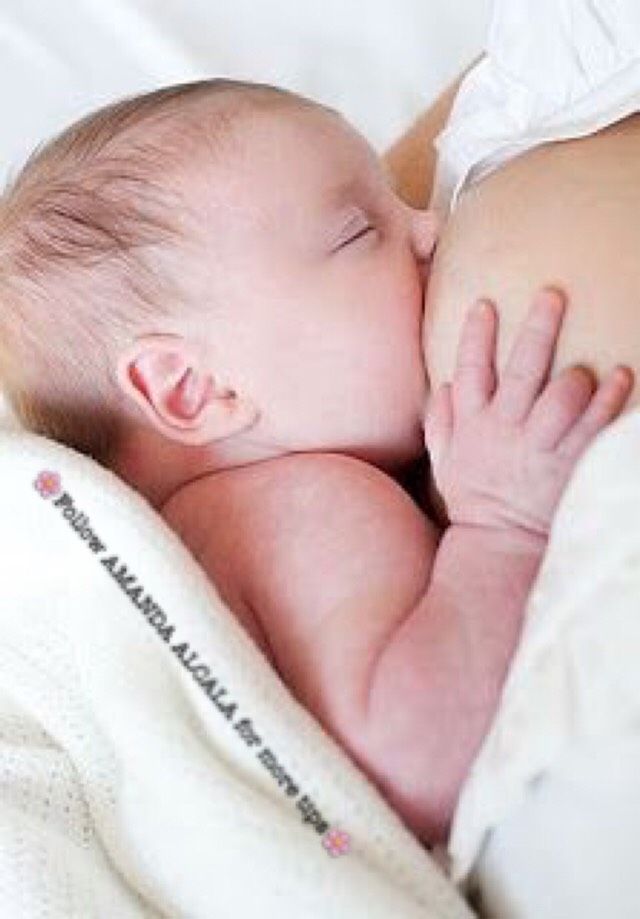 11.12 Consult with a qualified professional about your condition to decide whether breastfeeding can continue in such cases.
11.12 Consult with a qualified professional about your condition to decide whether breastfeeding can continue in such cases.
For quality lactation support during this period, you can use the dual electronic breast pump with innovative Flex technology or rent a Symphony Clinical Breast Pump** if available. A list of cities where you can rent a breast pump can be found on the "Rent a Medela Clinical Breast Pump" page.
Literature
1 Victora CG et al. Breastfeeding in the 21st century: epidemiology, mechanisms, and lifelong effect. Lancet . 2016;387(10017):475-490. - Victor S.J. et al., "Breastfeeding in the 21st century: epidemiology, mechanisms and long-term effects". Lancet 2016;387(10017):475-490.
2 Lönnerdal B. Bioactive proteins in breast milk. J Pediatric Child Health. 2013;49 Suppl 1:1-7. - Lönnerdahl B., "Biologically active proteins of breast milk". F Pediatrician Child Health. 2013;49 Suppl 1:1-7.
F Pediatrician Child Health. 2013;49 Suppl 1:1-7.
3 Australian Breastfeeding Association [Internet]. Topical treatment with breastmilk: randomized trials. [ cited 2018 Apr 4]. Available from https://www.breastfeeding.asn.au - Australian Breastfeeding Association [Internet]. "Topical treatment with breast milk: a randomized trial". [cited 4 April 2018] See article at https://www.breastfeeding.asn.au
4 Ho JCS et al. HAMLET–A protein-lipid complex with broad tumoricidal activity. Biochem Biophys Res Commun. 2017;482(3):454-458. - Ho J.S.S. et al., "HAMLET - a protein-lipid complex with extensive antitumor activity". Biochem Biophys Res Comm. 2017;482(3):454-458.
5 Hassiotou F et al. Maternal and infant infections stimulate a rapid leukocyte response in breastmilk. Clin Transl Immunology . 2013;2(4): e 3. - Hassiot F. et al., "Infectious diseases of the mother and child stimulate a rapid leukocyte reaction in breast milk." Clean Transl Immunology. 2013;2(4):e3.
Clin Transl Immunology . 2013;2(4): e 3. - Hassiot F. et al., "Infectious diseases of the mother and child stimulate a rapid leukocyte reaction in breast milk." Clean Transl Immunology. 2013;2(4):e3.
6 Hassiotou F, Hartmann PE. At the dawn of a new discovery: the potential of breast milk stem cells . Adv Nutr . 2014;5(6):770-778. - Hassiot F, Hartmann PI, "On the threshold of a new discovery: the potential of breast milk stem cells." Adv. 2014;5(6):770-778.
7 Ladomenou F et al. Protective effect of exclusive breastfeeding against infections during infancy: a prospective study. Arch Dis Child . 2010;95(12):1004-1008. - Ladomenu, F. et al., "The effect of exclusive breastfeeding on infection protection in infancy: a prospective study. " Arch Dis Child. 2010;95(12):1004-1008.
" Arch Dis Child. 2010;95(12):1004-1008.
8 Hanson LA. Breastfeeding provides passive and likely long-lasting active immunity. Ann Allergy Asthma Immunol . 1998;81(6):523-533. — Hanson, L.A., "Breastfeeding provides passive and likely long-term active protection against disease." Ann Allergy Asthma Immunol. 1998;81(6):523-533.
9 Hale TW, Rowe HE. Medications and Mothers' Milk 2017. 17th ed. New York, USA: Springer Publishing Company; 2017. 1095 p . — Hale T.W., Rowe H.I., Medications and Breast Milk 2017. 17th edition. New York, USA: Publishing House Springer Publishing Company ; 2017. p. 1095.
10 Reece-Stremtan S et al. ABM Clinical Protocol# 15: Analgesia and anesthesia for the breastfeeding mother, Revised 2017.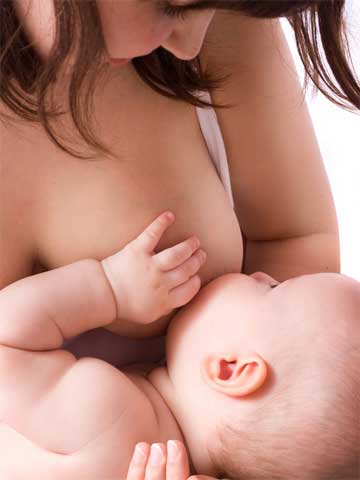 Breastfeed Med . 2017;12(9):500-506. - Rees-Stromtan S. et al., AVM Clinical Protocol #15: Analgesia and Anesthesia for Nursing Mothers, 2017 edition. Brestfeed Med (Breastfeeding Medicine). 2017;12(9):500-506.
Breastfeed Med . 2017;12(9):500-506. - Rees-Stromtan S. et al., AVM Clinical Protocol #15: Analgesia and Anesthesia for Nursing Mothers, 2017 edition. Brestfeed Med (Breastfeeding Medicine). 2017;12(9):500-506.
11 Lamounier JA et al. Recommendations for breastfeeding during maternal infections. J Pediatr 2004;80(5 Suppl ):181-188. - Lamunier J.A. et al., Guidelines for Breastfeeding during Maternal Infectious Diseases. J Pediatrician (Journal of Pediatrics) (Rio J). 2004;80(5 Suppl):181-188.
12 Hema M et al., Management of newborn infant born to mother suffering from tuberculosis: Current recommendations & gaps in knowledge. Indian J Med Res . 2014;140(1):32-39. - Hema M. et al., "Working with the Infant Born to a Mother with Tuberculosis: Current Recommendations and Gaps.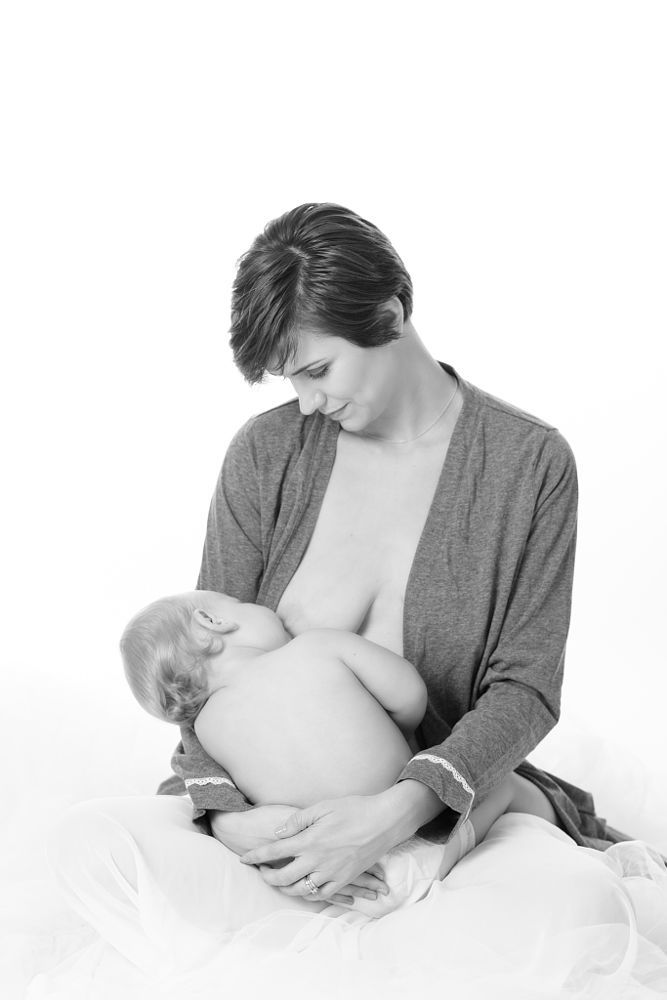 " Indian W Med Res. 2014;140(1):32-39.
" Indian W Med Res. 2014;140(1):32-39.
13 Lönnerdal B. Nutritional and physiologic significance of human milk proteins. Am JClin Nutr. 2003;77(6):1537S-1543S. Lönnerdahl B., "Biologically active proteins of breast milk". F Pediatrician Child Health. 2013;49 Suppl 1:1-7
14 Prime et al., Simultaneous Breast Expression in Breastfeeding Women Is More Efficacious Than Sequential Breast Expression, Breastfeed Med. Dec 2012; 7(6): 442–447. Prime DK and co-authors. "During the period of breastfeeding, simultaneous pumping of both breasts is more productive than sequential pumping." Brestfeed Med (Breastfeeding Medicine). 2012;7(6):442-447.
15 ClinicalTrials.gov [Internet]. Bethesda MD: National Library of Medicine, USA, data on file: NCT03091985. Clinical Research.gov [Internet]. Bethesda MD: National Library of Medicine, USA, data on file: NCT03091985.
Check out the instructions, consult with a specialist
* Ru FSZ 2010/07353 dated 07/19/10
** RU No. FCZ 2010/06525 dated 17/03/2021
FCZ 2010/06525 dated 17/03/2021
9000 9000 9000 9000 9000
000 Breastfeeding when the mother is ill.
home
Articles
Food
Stulova Maria Aleksandrovna Breastfeeding consultant
09.10.2013
Mom got sick! Nightmare! Grandmothers rush to the rescue, trying to protect the baby from infection and let the patient recover in peace.
However, good intentions and ignorance of physiology often lead to negative results.
Very important: if a nursing mother falls ill, it is necessary to choose medications that are compatible with breastfeeding*, and continue breastfeeding!!!
Contraindications to breastfeeding are the following diseases of the mother:
- eclampsia, severe bleeding during childbirth and in the postpartum period,
- open tuberculosis,
- a state of severe decompensation in chronic diseases of the heart, lungs, kidneys, liver,
- and hyperthyroidism,
- acute mental illness,
- especially dangerous infections (typhus, cholera, etc.
 ),
), - herpetic eruptions on the nipple of the mammary gland (before their follow-up treatment),
- HIV infection.
With such diseases of a nursing mother as rubella, chickenpox, measles, mumps, cytomegalovirus infection, herpes simplex, acute intestinal and acute respiratory viral infections, if they occur without severe intoxication, breastfeeding, subject to the rules of general hygiene, is not contraindicated.
The presence of hepatitis B and C in women is currently not a contraindication to breastfeeding, however, feeding is carried out through special silicone pads. In acute hepatitis A in the mother, breastfeeding is prohibited.
And if we are dealing with banal colds, flu or mastitis, then interrupting breastfeeding for the duration of the illness is NOT good for either the mother or the child.
Why?
Because by the time the mother has symptoms of the disease, the child may already be infected. He is in a state of “pre-disease”, but has the opportunity not to get sick or to suffer the disease in a mild / latent form.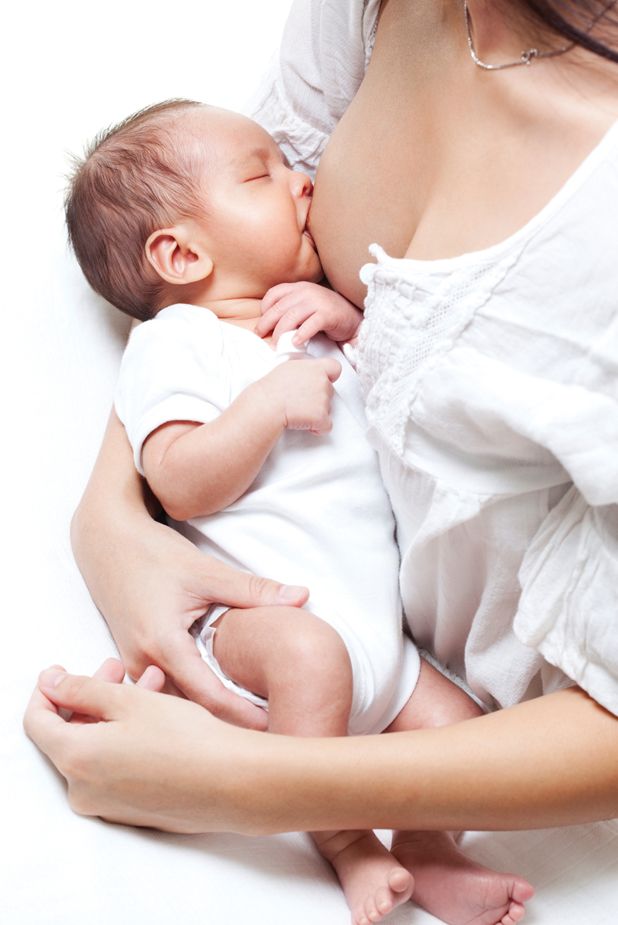
To do this, it is necessary to help the baby's immune system and save the body's resources to fight infection. What can help the immune system are breast milk immunoglobulins, as well as a huge amount of vitamins and other biologically active substances from milk.
How to preserve the resources of the body - provide the child with the most easily digestible food (this is breast milk), which will save energy, reduce stressful situations (absence of a mother nearby, inability to habitually suckle the breast, the appearance of a new person in the house to care for the baby), save heat (avoid long walks in the cold season). Conclusion: the main help for the child's body is the preservation of the usual rhythm of breastfeeding and the usual contact with the mother.
If we decide to interrupt breastfeeding for the duration of the illness, then the child has to be transferred to artificial formula. What is NOT good for the child:
- The child is deprived of mother's milk immunoglobulins and many bioactive substances
- The load on the gastrointestinal tract increases, because the mixture is an indigestible product to which the body must adapt
- The risk of allergies increases and, accordingly, the body's resistance to infections decreases
- The child is deprived of habitual sucking and nutrition, and with it the necessary contact with the mother - this is a psychological stress for the baby, weakening the body's resources
- Often, when suckling the nipple, the child develops a mechanism of improper sucking, which prevents a further return to breastfeeding
What is NOT useful for a mother to interrupt breastfeeding during illness:
A change in the rhythm and quality of breast emptying, which in turn can provoke lactostasis, and then mastitis (especially if the mother has a bacterial infection).
During illness, the breast must be emptied very efficiently, sometimes giving the child to suck even more often than usual and from different positions. At the same time, many children themselves increase the rhythm of attachments during illnesses (mother's and / or their own) - they seem to “hang” on their chest for a couple of days. And grandmothers at this time can help mom around the house, take care of hygiene and the baby.
Usually safe, used in medium doses, are short courses of paracetamol, ibuprofen; most cough medicines; antibiotics - ampicillin and other penicillins, erythromycin. However, in the instructions for these drugs, you will most likely find a contraindication - breastfeeding. This is due to the fact that the manufacturer must conduct studies on the effect of the drug on the child through breast milk. Since it is very expensive and not every pharmaceutical company can conduct such studies, manufacturers are forced to write a warning. Studies by foreign companies show that the above drugs practically do not penetrate into breast milk (either due to the very large size of the molecules, or due to strong binding to blood proteins) and cannot harm the baby.


